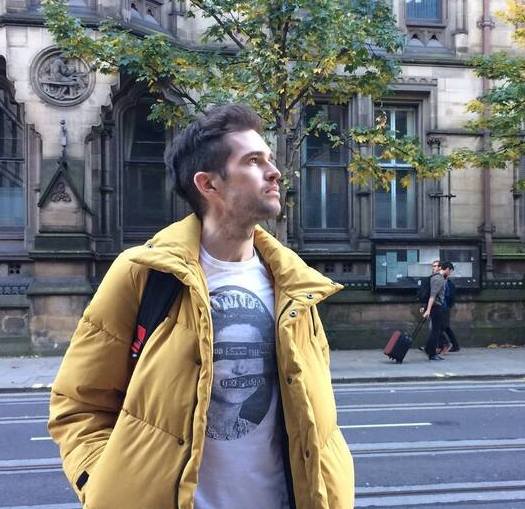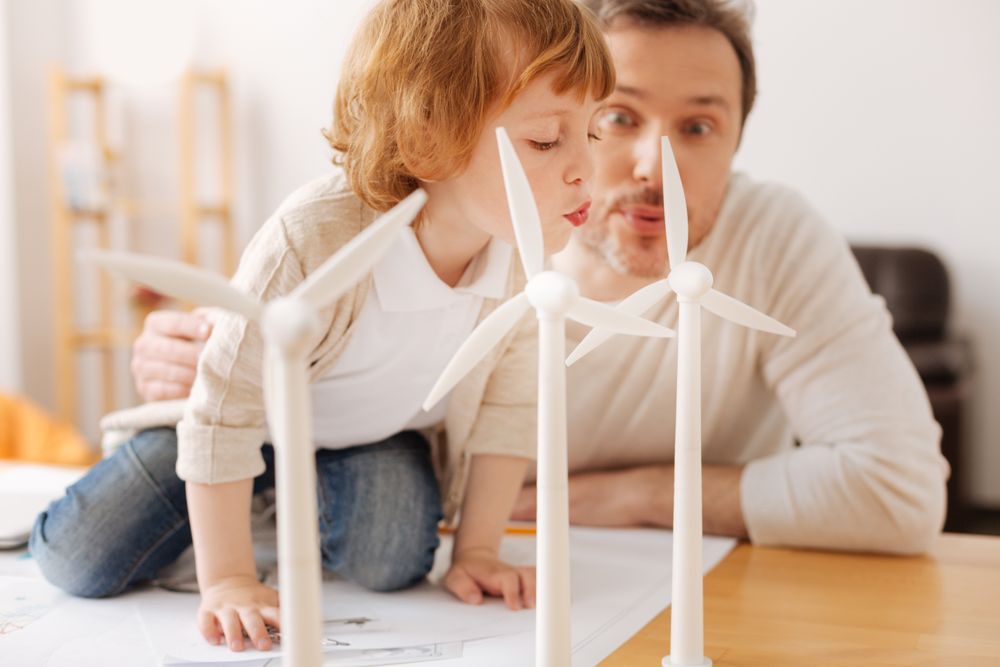A new year = new you. Right?!
And wouldn’t it be amazing if new you = fresher, cleaner planet?
The good news is that, while saving the planet all by yourself sounds pretty damn amazing, you don’t have to go out on a huge limb to make a difference.
In fact, there are 20 (relatively) small things we can all do in 2020 to make our planet cleaner, healthier, and a tiny bit more sustainable. Capes are optional.

#1. Start a compost heap
Is 2020 going to be the year you finally start a compost heap? It is a great way to reduce waste, and it also creates a healthier environment for your plants.
Here’s a cute article that shows you how to make a start on your very first compost heap.
#2. Make laundry time more efficient
As well as doing a wash with your housemate (provided they don’t mind dumping their clothes in with yours), you could also refrain from using the dryer now and then and wash at the lowest temperature. Try washing with soap nuts, too.
Another cool tip is to wait until you’ve got a huge amount of laundry before doing a "full load."
#3. Take shorter showers
Long showers are a nice way to feel clean and energized after a stressful day at work, but they can be just as bad for the environment as long baths (which you should also try to have a lot less of).
But short showers work just as well. As well as saving the planet a tiny bit, they also save you a bit of time. 😉
Another cool idea is to invest in a water-saving shower head.
#4. Start using energy-efficient appliances
New appliances cost money, for sure. But if you’ve got room in your budget for new appliances, or if you’ve been meaning to replace an old one for a while now, why not make your next purchase energy-efficient?
Energy-efficient appliances can include ovens, washing machines, and fridges, but there’s a lot to consider. For example, a smaller washing machine is ideal if you live alone and do relatively small washes, while front load washing machines are more efficient because they minimize drying times and remove water from the drum at a faster rate.
Take a look at the energy label when you go shopping for appliances, too. These labels usually contain a letter ranging from G to A+++, with the latter being the most efficient.
Also, alliances such as dishwashers should come with eco-settings, which is another way of saving energy in the long run.
#5. Use your bike more (and your car less)
Are you the type of person who literally uses your car for everything? Even when you just need to pop out for some bread, you fire up the engine just to save a bit of time.
Why not invest in a bike or (if you already have one) use the one that’s gathering dust in your shed? Cycling is energy efficient, it’s fun, and it keeps you fit and healthy.
Before you know it, you’ll be cycling everywhere!
#6. Buy locally sourced food
Buying local is a great way to help the environment, primarily because it means less transportation time and thus a lower carbon footprint. Win-win.
Of course, it really depends on where you live because buying locally sourced food can be a challenge. But you’ve got options, such as farmer’s markets, community gardens, and even traditional markets. Make sure to get out there among farmers and people, make yourself known and really get involved in the community. With a little planning, you can make it work.
#7. Drink more organic beer
It seems that you can get your hands on organic anything these days — yep, even organic booze!
Organic beer is good for your gut (less toxins), but it’s also sustainable, and it means you’re doing your bit for the organic farming industry — which also means you’re not harming any wildlife whatsoever.
#8. Carry your water bottle every-fricking-where
It shouldn’t be our job to tell you that water is the elixir of life and that you should drink more of it. You know this.
But many of us get into the habit of purchasing X bottles of water throughout the week, which is so much unnecessary single-use plastic waste. So do yourself and the planet a favor by remembering to pack your water bottle every day.
#9. Turn off your TVs when you’re not watching them (standby is lame)
I remember my mum telling me to turn my TV onto standby when I first moved out in order to save on energy. But you know what? We can go one better by switching our TVs off altogether whenever we’re not using them.
#10. Read more but borrow books from libraries and friends
Buying new books all the time is expensive and it’s not really good for the environment. So why not get yourself a library card and rent more books?
Or, maybe you could do a shout/out on Facebook to see which friends have books they can lend you? Or organize a swap?
Second hand book stalls/stores are full of great, inexpensive finds too, while eBooks are an obvious way to save on clutter.
#11. Go on holiday (yay) but learn how to travel sustainably
Life wouldn’t be the same if we didn’t escape at least once a year from our four walls, but it’s really important that we learn how to travel sustainably.
Go here for some tips.
#12. Start going to zero waste stores
Zero waste stores are popping up here, there and everywhere. They often provide no bags at all, no waste and you get to bulk buy awesome, delicious organic food, and produce.
NatureHub app is putting together guides to zero waste stores across all the U.S. Make sure to check out the app to locate your nearest zero waste store, too!
#13. Grow your own plants
Got a romantic partner who loves flowers? From now on, you could start growing your own plants instead of buying them.
You could also grow your own plants as a food source.
After all, food always seems to taste better when we’ve grown it ourselves, and there are all kinds of vegetables you can grow, from radishes to onions and garlic.
For apartment dwellers, here’s a helpful resource that will show you how to turn your fire escape into your own garden.
#14. Take your own coffee mug to the office
It just saves you having to use those paper cups that pop out of the vending machine and end up in landfills.
Plus, it reminds you of home, and who doesn’t need a bit of that when they’re in the office all day long?
#15. Buy less
We get it, of course. Resisting the urge to buy is difficult, especially in 2020 when there are ads for stuff flying at us all over the place.
A smart idea is to unsubscribe from the newsletters that usually trigger you, and you could also unfollow brands on social media that way too often lead you into temptation.
Set some goals, too. Ask yourself, "do I really need this?" before buying something and try not to be that person who can’t stop treating others in the form of gifts.
#16. Shop second hand
Following on from the point above, second hand/thrift stores are great places to shop when you really must buy a certain something.
After all, we can’t go on a consumption fast forever. So let’s say you fancy treating yourself to a new vinyl record. Well, a second hand store not only helps you be more sustainable but it’s also cheaper! Double win.
Here is our guide to thrifting/second hand shopping.
#17. Use less toxic house cleaners
Household house cleaners are often full of dangerous toxins that are bad for the environment and also kinda bad for you.
In fact, according to the Environmental Protection Agency, indoor pollution is one of the world’s biggest environmental concerns — and cleaning products are high up the "wanted" list. So what can do you do instead?
Well, you could create your own DIY home cleaning products. Check out NatureHub app and Instagram feed for ideas.
#18. Cut down on meat
Meat is actually really taxing on the environment, with research showing that the whole meat production process is a contributing factor to global warming.
The more meat you eat = the bigger your carbon footprint will be.
Naturally, going greener isn’t easy and many (including this writer) have struggled to make the transition successfully. If you’re looking to be more green but you’re a little unsure of how to make it stick, keep your eyes peeled for Nature Hub’s upcoming "how to go greener" article.
Other than that, you could start by eating meat just 2 days a week (if you currently consume it every day of the week) and go from there. Getting into cooking will help, too, as it will give you a chance to be more creative with vegetarian and vegan recipes (which, again, you can find in NatureHub app).
Talking to friends who have given up meat is a smart move as well.
#19. Volunteer more
Eco-friendly volunteering includes things like cleaning the beaches, planting trees, helping out on urban farms and cleaning up your local rivers.
Check out your local Facebook groups to see what’s going on in your area.
#20. Use all the paper
Paper accounts for 25% of landfill waste, which is a staggering number.
However, it can be reduced if we get wiser about how we use paper.
For example, printing both sides of a sheet of paper is a good place to start, while finishing off a notebook before starting another one is always helpful. It might not sound like a lot, but it’s amazing how many people buy a notebook before leaving 50% or more of it blank.
Opting out of junk mail is another little hack that works a treat, while you could also tell your bank to stop sending you paper bank statements.
And if you have got paper lying around that you know you won’t use, why not get a bit creative and use it to wrap presents?
Conclusion
Being more conscious about how you live your life and how your choices impact the planet is a really good resolution for anyone to have. Whether this means you start eating more plant-based foods or you even growing your own planets, every little helps.
Don’t forget to leave us a comment if you have suggestions of your own!
Join the budding community of conscious consumers right now and help save the planet! The NatureHub Conscious Community app is now available on both Google Play Store and iOS App Store.
Download it here: Apple iOS • Android






